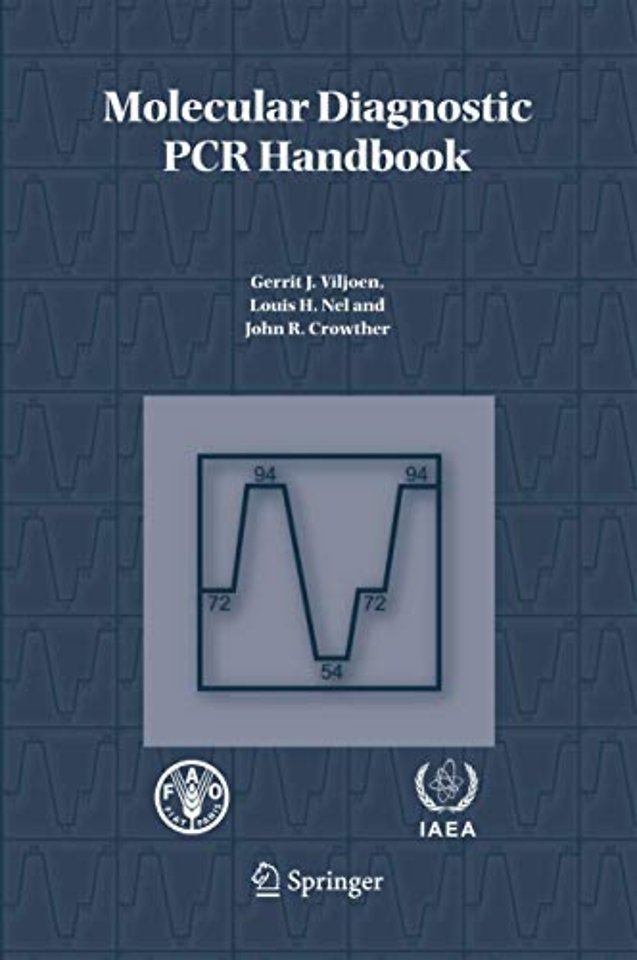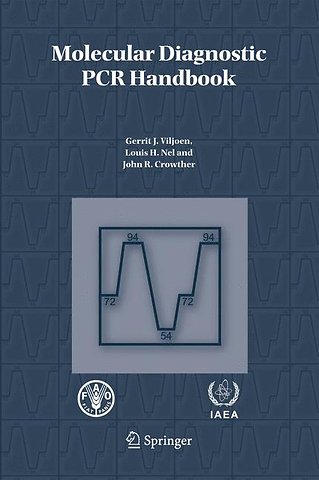Molecular Diagnostic PCR Handbook
Samenvatting
PREFACE The Joint FAO/IAEA Division of Nuclear Techniques in Food and Agriculture is involved in agricultural research and development and assists Member States of FAO and IAEA in improving strategies to ensure food security through the use of nuclear techniques and related biotechnologies, where such techniques have a valuable and often unique role. In particular, molecular diagnostic methods have rapidly evolved in the past twenty years, since the advent of the Polymerase Chain Reaction (PCR). They are used in a wide range of agricultural areas such as, improving soil and water management; producing better crop varieties; diagnosing plant and animal diseases; controlling insect pests and improving food quality and safety. The uses of nucleic acid-directed methods have increased significantly in the past five years and have made important contributions to disease control country programmes for improving national and international trade. These developments include the more routine use of PCR as a diagnostic tool in veterinary diagnostic laboratories. However, there are many problems associated with the transfer and particularly, the application of this technology. These include lack of consideration of: the establishment of quality-assured procedures, the required set-up of the laboratory and the proper training of staff. This can lead to a situation where results are not assured. This book gives a comprehensive account of the practical aspects of PCR and strong consideration is given to ensure its optimal use in a laboratory environment. This includes the setting-up of a PCR laboratory; Good Laboratory Practice and standardised of PCR protocols.
Specificaties
Inhoudsopgave
Chapter One: Background.
Chapter Two: PCR – the basic reaction.
Chapter Three: Amplicon detection, analysis and PCR evaluation.
Chapter Four: Limitations and Troubleshooting.
Chapter Five: Specific types of PCR assays.
Chapter Six: The PCR laboratory.
Chapter Seven: Disease diagnosis using PCR specific procedures for important veterinary pathogens.
Appendices. Technical. Information and general protocols.
Appendix A: Thermal cyclers.
Appendix B: Basic protocol for agarose gel electrophoresis.
Appendix C: Using nucleic acid hybridisation in order to verify the integrity of a PCR amplicon.
Appendix D: Digestion of DNA with restriction endonucleases and electrophoresis of the restriction fragments.
Appendix E: DNA sequence analysis.
Appendix F: An example of a RT-PCR protocol.
Appendix G (i): Calibration and Maintenance of Mechanical Pipettes.
Appendix G (ii): Standard Operating Procedure for using micropipettes.
Appendix H: Standard Operating Procedure for using clocks and timers.
Appendix I: Theoretical background to pH, buffers and concentration of solutions.
Appendix J: General buffer and stock solutions.
Appendix K: General reagents and suppliers.
Appendix L: Bioinformatics.
Original Papers. Glossary. Index.

